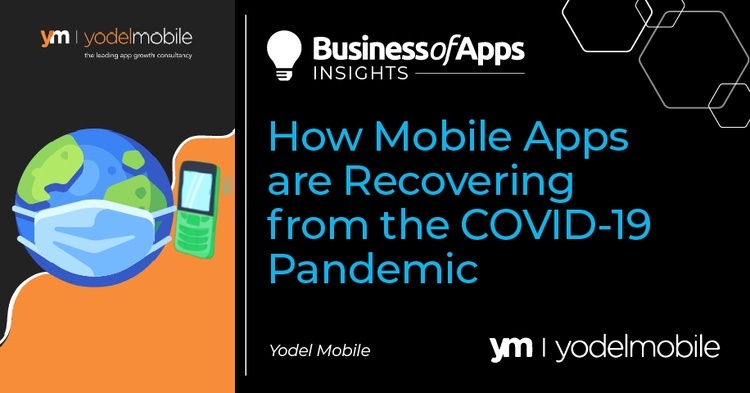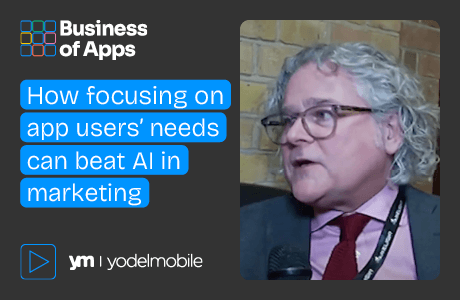
The COVID-19 pandemic affected almost every single facet of our world, and the mobile marketing space was no exception. Rapidly increasing installs and ad spend, pivotal new media channels taking a quantum leap into the mainstream, and a unique new demographic to cater to are just some of the most important faces of an unprecedented paradigm shift in the app ecosystem.
The fallout: mobile apps are adapting and evolving
As millions of people faced the prospect of lockdown, they turned to their mobile devices for flexible solutions: users streamed into mobile workspaces and communication tools, to innovative games and inventive new social media channels, and even diversified entertainment options. The result? A record 218 billion downloads in 2020, and a record $34 billion in spending on mobile apps in Q2 2021 ($2 billion more than Q1).
Critically, for the first time in history, time spent on apps by the average American surpassed time spent watching TV. Not only that, but app markets in developing countries saw even stronger growth, with installs up 167% in Nigeria YoY. Perhaps most amazingly though, is that these trends show no sign of reversing despite a global easing of lockdowns and gradual recovery.
1. Evolving platforms and channels: TikTok and Gen Z’s media revolution
Of the apps that have attained runaway growth in the past year, none were more impactful than the most-downloaded app of 2020: TikTok, the fastest-growing social media platform in history.
This audiovisual video-sharing platform is now used by 45% of marketers in their campaigns; only Facebook surpasses this number. One of the most important aspects of Tiktok’splatform is that it is a trailblazer, with one survey showing that people considered TikTok 21% more trendsetting than other social media. Secondly, user engagement with ads is higher on TikTok than on other platforms, being 10% more eye-catching and users being 10% more receptive to them. Finally, TikTok is also now the number one platform for driving user engagement.
So who is driving this sea change in advertising channels? Gen Z.
Gen Z’ers have shorter attention spans than other generations at 8 seconds (even millennials are at 12 seconds). This makes TikTok’s self-paced content discovery model, intuitive UX, and nearly instant content creation very attractive to this growing demographic. Driving this point home, 60% of Tiktokers are Gen Z’ers, and more Gen Z’ers now use Tiktokthan Instagram.
2. The ‘New Normal’
As the home became the centerpiece of life during the pandemic and almost all aspects of daily activities became remote, technology flooded the home and became increasingly interlinked.
This is especially evident when considering that 38% of American homes have connected a new device to their internet since the pandemic began, now averaging 25 devices per household.
Among the digital ecosystems that have sprung up from this technological boom, healthcare and fitness have been standouts. 26% of owners of smartwatches and trackers also subscribe to a service that provides personalised healthcare and fitness updates, while more than half of US consumers attended a virtual healthcare appointment. Importantly, these trends seem likely to continue to be strong after the pandemic, with 62% of US consumers saying they will schedule virtual medical appointments even when the pandemic ends.
Turn installs into active and engaged customers
Grow in-app revenue and build user loyalty with custom retargeting and churn prediction campaigns from Adikteev.
Get startedLooking to the future
The quickly evolving app ecosystem is becoming increasingly complex as it recovers from the pandemic that paradoxically drove it to new strengths. The fast-changing mobile industry requires adaptive app marketing solutions that take into consideration the ongoing shift in trends and consumer expectations. The ability to feed in new approaches will be the key to app businesses rising to the top as the mobile space continues to reposition itself alongside a global recovery. From generationally-driven media revolutions to a necessary shift in everyday behaviour (as we navigated in and out of lockdowns) app businesses will have to prepare for the peaks and troughs that come with the constantly fluctuating demand.
If you have any questions or want to find out a bit more you can reach out to the Yodel Mobile Growth Team here.











